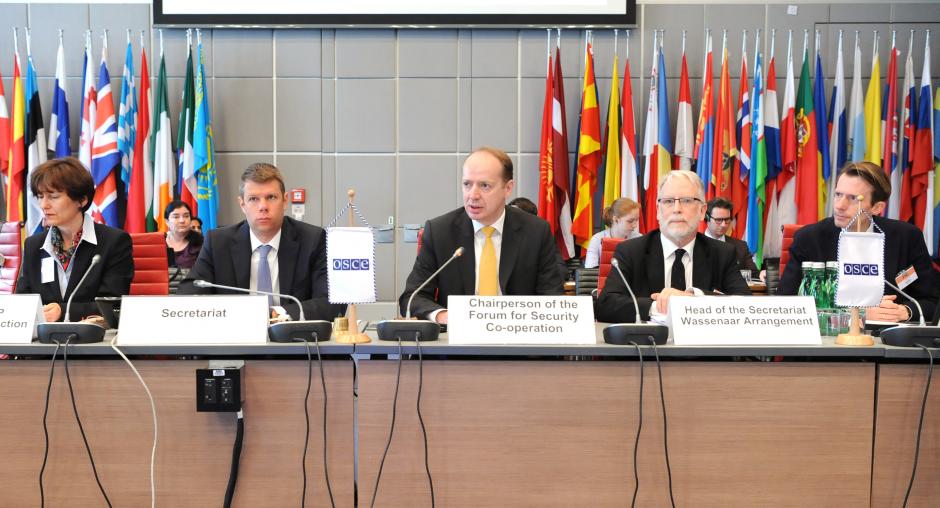Role of export controls, deactivation measures in controlling the spread of small arms & light weapons explored at OSCE Forum for Security Co-operation

VIENNA, 2 May 2018 - The importance of national export control systems and deactivation programmes as essential instruments in preventing the destabilising accumulation and uncontrolled spread of small arms and light weapons (SALW) was emphasized by speakers at today’s OSCE Forum for Security Co-operation meeting in Vienna, held under Slovenia’s Chairmanship.
Ambassador Andrej Benedejčič, Chairperson of the Forum and Permanent Representative of Slovenia to the OSCE, opened the discussion by noting that the OSCE’s work on SALW is one of the areas where the organization’s participating States have been repeatedly able to achieve consensus.
“Small arms and light weapons are recognized as a major cause of deaths and human rights abuses. This should be of concern to the participating States because the OSCE area comprises many major producers of such weapons,” he said. “It is therefore only right that the Organization takes the issue of illicit arms proliferation very seriously.”
Referring to the OSCE Handbook of Best Practices on Small Arms and Light Weapons, he noted that this publication includes the Best Practice Guide on Export Control, and in February was updated to include the Best Practice Guide on Deactivation of SALW.
“As such it recognizes the specific threat posed by poorly deactivated small arms and light weapons, which can be illicitly converted, transformed or reactivated, especially for terrorist or criminal purposes,” said Ambassador Benedejčič.
Ambassador Philip Griffiths, Head of the Secretariat of the Wassenaar Arrangement on Export Controls for Conventional Arms and Dual-Use Goods and Technologies, a multilateral export control regime with 42 participating states, highlighted their work particularly related to deactivated firearms.
He noted the complementary nature of the efforts by the OSCE and the Wassenaar Arrangement, in line with their respective mandates, to promote common understandings and standards to help prevent the trafficking and reactivation of such weapons and their use in criminal or terrorist acts. He also emphasized the importance of the gender aspects of addressing SALW that need to be taken into account.
Judit Körömi, Chair of the European Union Council Working Party on Non- Proliferation (CONOP), outlined how the EU is supporting the fight against the illicit proliferation of weapons in the Western Balkans, the Middle East and the Sahel region in close co-operation with the UN, Interpol and regional organizations such as the OSCE and the African Union.
“To deal with the problem of poorly deactivated weapons used by terrorists within the EU, the EU adopted deactivation standards immediately after the attacks in Paris in November 2015,” she said.
She added that the EU has been inspired by the OSCE, which has for many years been a pioneer in promoting co-operation and standards on better small arms control. She complemented the OSCE’s work in SALW-related issues in preparation for the third Review Conference on Programme of Action on SALW, which will be held from 18 to 29 June 2018 in New York.
“Guidance provided by the OSCE’s Best Practice Guide had made the OSCE a global trendsetter on the deactivation of SALW”, said John Reyels, Deputy Head of the Division for Conventional Arms Control and Confidence- and Security-Building Measures at Germany’s Federal Foreign Service.
“OSCE participating States now face the challenge of ensuring comprehensive implementation of these guidelines,” he said. “All available OSCE tools including funding opportunities provided by OSCE-trust funds should be used to this end. The irreversible deactivation of surplus weapons should be a central building block of every state’s overall strategy for SALW control.”
